Nov 2018 2nd Edition
Nov 2018 2nd Edition Londekile
Translations
Child abuse, recognise the signs
Child abuse, recognise the signs Londekile“Failure to do so is a criminal office,” said Teddy Bear Foundation director, Dr Shaheda Omar.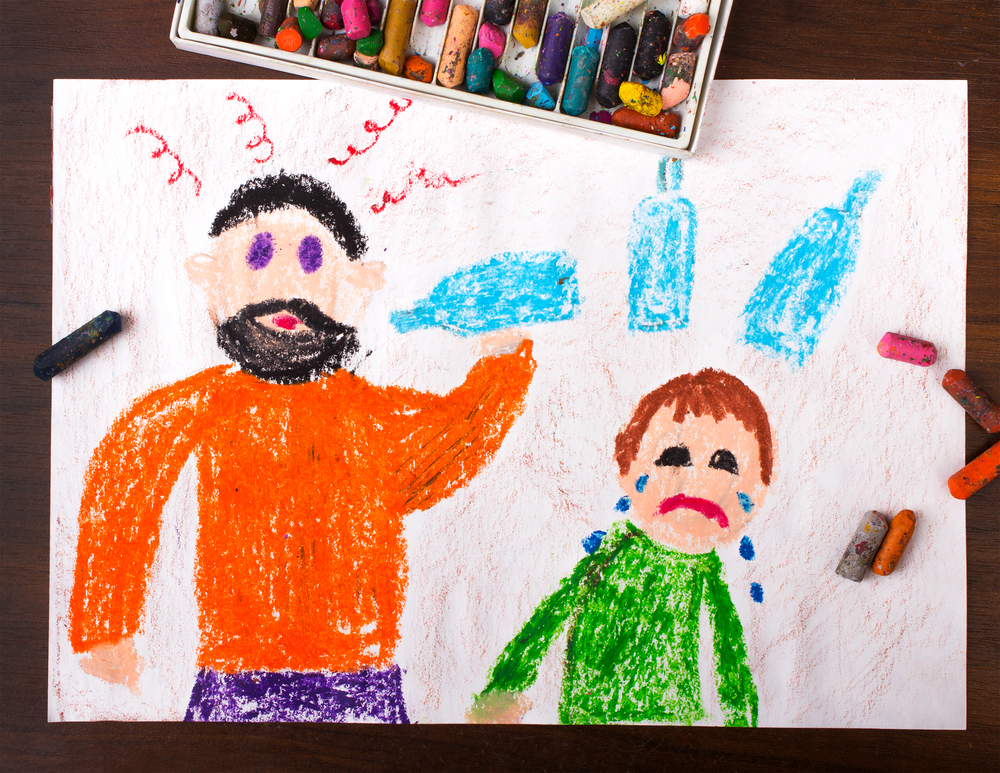
The foundation provides holistic, integrated and comprehensive services to victims of child abuse and their families.
“Abuse has to be reported, even if it’s just a suspicion, as long as you are acting in good faith. If the allegation is unfounded, the person reporting the matter will not be subjected to any legal recourse according to a precedent set by law,” Dr Omar explained.
According to the World Health Organisation, there are various forms of child abuse, including physi-cal, sexual, emotional or psychological, neglect and exploitation.
If you suspect that a child is being abused, there are signs to look for. One of the most common signs of physical abuse is injuries that a child struggles to explain, such as bruises, burns or bite marks. Children who are physically abused might also flinch or back away when people raise their voices or move towards them too quickly.
Signs of emotional abuse can include apathy; depression; hostility or stress; lack of concentration; eating disorders; headaches, nausea and abdominal pains; and suicide attempts.
Sexual abuse is the most difficult form of abuse to deal with. When a child discloses sexual abuse, it is very important that it be taken seriously and handled with sensitivity. Expressions of horror, disbelief or blame can be just as damaging to a child as the act itself.
“The rule of thumb is never to look at child abuse in isolation, but rather in context. Look for a cluster of symptoms,” said Dr Omar.
She explained that the overarching signs are sudden changes in behaviour. A quiet child, for example, may suddenly become unruly and disruptive and display signs of aggression.
“If a child tells you that they are being abused, empathise with the child’s pain and trauma and remain supportive. Do not overreact and badger a child with many questions. Rather move at their pace, explain the processes that will be followed and the people that may become involved,” Dr Omar said.
Communication is key to knowing child
Communication is key to knowing child LondekileAs children are the main victims of violence in South Africa, Vuk’uzenzele asked Childline South Africa for some tips to get to know your child better.
It is not easy to raise a child, but a little help from experts goes a long way to ensuring that you do the best that you can.
According to Childline South Africa, a non-profit organisation that protects children from all forms of violence and creates a culture of children's rights in South Africa, parents must communicate positively with children.
Do not shout at them; talk to them with respect; give them choices; involve them in the decision-making process; teach them right from wrong; and encourage them to express their feelings.

You can do this by holding regular family meetings, where everyone talks and listens. Talking is the best way to teach children and you can encourage good behaviour by simply explaining things to them. Childline advises parents to listen intently and to be patient, as children may not know how to say what they think or feel.
Children need to know what is and isnít acceptable
Make sure they know why rules are needed and that there will be consequences if the rules are broken. Always be consistent and enforce these consequences. As children get older, encourage them to discuss these rules and let them help determine consequences.
Always praise children for good behaviour
By telling them how much you like the good things they do, bad behaviour may disappear. In addition, rewards work better than punishment. Whilst many parents reward children with toys or sweets, the best rewards are hugs, smiles and showing an interest in them.
Building self esteem
It’s vital that you help your children to build their self-esteem. You can help them by praising them for trying to help and using their imagination, intelligence and playfulness; encouraging them to talk; making them feel special and telling them that they are special; and being trustworthy, so that they can count on you.
Harmful behaviour unacceptable
It is never acceptable to harm children. Harmful behaviour includes screaming, swearing, threatening and belittling them. Swearing in front of or at children may make them feel insecure and threatened.
Difficult or ‘special’ children may have a particular problem, such as Attention Deficit Disorder or Attention Deficit and Hyperactivity Disorder which may require them to follow a specific diet and need assistance with medication.
If a parent or caretaker does not know how to manage their childís behaviour or special needs, they can call Childline on 08 000 55 555 and speak to a counsellor for advice.
Courts have no mercy on sex offenders
Courts have no mercy on sex offenders LondekileLengthy sentences await perpetrators of gender-based violence as government sends out a message that all forms of abuse will not be tolerated.
Culprits of gender-based violence (GBV) – be warned! South Africa’s law clearly states that people who commit this type of abuse can be subjected to lengthy prison sentences.
The vast majority of GBV occurs when a man uses his position of physical power to abuse a woman or girl. The term can refer to a variety of criminal offences, including rape and attempted rape, assault, sexual assault, exploitation and even murder and attempted murder.
Minimum sentences
The Commission for Gender Equality’s (CGE) legal director Marissa van Niekerk, said that the Criminal Law Amendment Act 105 of 1997 compels courts to impose minimum sentences for certain crimes, unless compelling circumstances justify a lesser sentence.
“The Act sets the prescribed minimum sentence of life imprisonment for crimes related to aggravated murder, aggravated rape and aggravated compelled rape,” said Van Niekerk.
Aggravated rape refers to particularly brutal rapes where, for example, the victim is raped more than once, while compelled rape means forcing someone else to rape a victim.
Meanwhile, the Act states that first-time rape offenders (without any aggravating factors) will receive a minimum sentence of 10 years. Second offenders will receive a minimum of 15 years, with that number increasing to 25 years for third offenders.
The Criminal Law (Sexual Offences and Related Matters) Amendment Act further protects the victims of GBV, outlining a variety of crimes related to sexual abuse.
According to the latest crime statistics released in September, 50 108 sexual offences were recorded by the police in 2017/18, slightly up from 49 660 in 2016/17. The majority of the sexual offences recorded were rapes, followed by sexual assaults.
When these crimes are particularly violent or repeat offences, judges should impose harsh sentences on the offenders.
“If a person is convicted of an offence under the Act, the court may impose a sentence which is considered appropriate,” Van Niekerk said.
She added that lengthy prison sentences should be a deterrent to other offenders.
“The justice system needs to impose sentences that send a strong message to other offenders that such offences will not be tolerated in South Africa. A sentence must deter others from committing similar offences, as well as from committing crime in general.”
Ensuring stricter laws
Van Niekerk said that one of the critical roles of the CGE is to work with the justice system and government to ensure that the law is strict on offenders.
“One of the issues we are working on is concurrent sentences, where sentences run alongside each other instead of consecutively,” said Van Niekerk.
“The concurrent sentences result in a reduction of years which the offenders serve in prison. There is a need to scrap this law. Once this is done, not only would justice be done, but be seen to have been done.”
Once the CGE has completed its research into this important issue, it will be taken to the South African Law Reform Commission, which makes recommendations on developing, improving, modernising or reforming laws.
Did you know
- The law states that first-time rape offenders (without any aggravating factors) will receive a minimum sentence of 10 years.
- Second offenders of rape will receive a minimum of 15 years.
- Third offenders of rape receive about 25 years imprisonment
Death and despair: An abuser’s journey to hell
Death and despair: An abuser’s journey to hell angenithaMen who abuse power and positions of authority to control women and children need to realise that their actions are against everything our Constitution stands for.
Anger left untamed can become a beast, one that can lead you to a life of hell.
As the world observes 16 Days of Activism for No Violence against Women and Children from 25 November to 10 December, Vuk’uzenzele visited Kgosi Mampuru II Correctional Centre in Pretoria to speak to an offender who recently started his sentence.
Ntsako* handed himself over to the police last year after brutally murdering his fiancée, who is also the mother of his four-year-old daughter.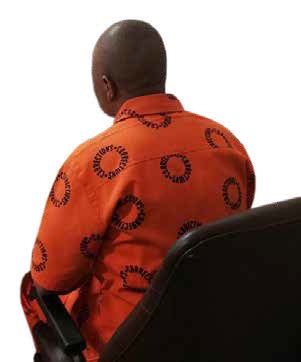
The 37-year-old is serving a 12-year sentence and admits that it was his anger that landed him behind bars.
Their relationship started in 2012, when she was 21 and he in his 30s. “I loved her. At some point I even took the decision to pay for her tuition fees… we later got engaged and stayed together,” he said.
However, Ntsako soon noticed things about his girlfriend that he did not like. He started hitting her early on in the relationship because, he claimed, she cheated and lied. Their relationship became more and more toxic.
“I am not a person who likes fighting or arguing. I have always been a quiet person who likes to solve my problems on my own,” he said.
“I tried to talk to her but she would not listen and sometimes I would end up cheating too but she would always find out because I am not good at hiding things,” he added.
They later had a child together. But according to Ntsako, the cheating and lies never stopped.
“I would sometimes find messages and pictures from other guys on her phone. I would confront her but she would deny any wrongdoing. We would end up fighting. I was hurting but I did not talk to anyone about my pain,” said Ntsako.
His mother and his late fiancée’s mother had asked him to end the relationship because things were getting out of hand, but he refused.
He said his anger would always get out of control when they fought. On the fateful day that he killed her, he hit her with a metal object in front of their daughter and his mother.
“Now my relationship with my daughter is ruined too. I was not supposed to do what I did. I wish I had avoided that. My biggest problem was not talking about my problems,” he said.
Ntsako has advised other men to avoid finding themselves in his situation by speaking out about issues that affect them and by never hitting a woman.
Domestic violence vs GBV
Domestic violence vs GBV LondekileAbuse and violence are unfortunate phenomena that can affect any member of society regardless of their age, skin colour, social status or gender.
In recent years, South Africa has been plagued by the scourge of gender-based violence (GBV) and cases of violence against women and children which have widely been reported by the media.
Government continues to condemn this and calls for society to unite in order to win the fight against GBV.
However, it is easy for people to confuse GBV with domestic violence, although both are not ideal in society.
The GBV Command Centre Manager Nomathemba Malvern explained the difference between the two.
“Domestic violence includes any form of violence and abuse that happens within a family unit, whereas gender-based violence involves men and women, in which the female is usually the target, and is derived from unequal power relationships between men and women,” she said.
She added that GBV also affects members of the lesbian, gay, bisexual, transgender/transsexual, intersex and queer/questioning (LGBTIQ) community.
If you are in an abusive relationship, you must get help. There are a number of organisations that help victims of violence and abuse.
EC contractor creating jobs
EC contractor creating jobs JoyA small contractor in the Eastern Cape is building roads and creating jobs in his community.
Mncedisi Twantwa is not only happy that his company is responsible for building a slip road in Msikaba, but also because through the project he has been able to create 32 much-needed jobs.
Twantwa owns Krweba Trading, an SMME contracted to do work on the Msikaba South haul road project near Lusikisiki in the Eastern Cape.
“In terms of experience, yes I can say we benefited as a company as this was my second time building a slip road. I’m happy with the outcomes hopefully we’ll get more work.”
Twantwa said before working on this project his company was building access roads.
“This is my second slip road that I’ve done and its quite a challenge because this side there aren’t many concrete roads,” he said.
Krweba Trading partnered with Aveng who assisted the company with assistance and advice on the project.
“They have assisted us on how to put together the steel fixing and we’ve done a lot more concrete work.”
“I’ve learnt to build a slip road. They also taught us how to do the side drains,” he said.
He is also proud to be able to help create employment opportunities in the Eastern Cape where unemployment is high.
“I have about 32 people working for me and they come from different areas,” he said, adding that he initially had only 12 employees.
Working on the project has added invaluable experience to his company and he hopes that it will stand it in good stead going forward.
He said getting more work would also ensure more people remain employed which would benefit the local economy and community at large.
Ensuring a free and fair media
Ensuring a free and fair media LondekileThrough the Press Council, the media has committed to accurate and balanced reporting which shows special concern for children and other vulnerable people, including rape survivors.
hile media freedom is a vital part of South Africa’s democracy, media outlets’ reporting needs to be fair and accurate.
This is especially relevant when reporting on sensitive issues such as gender-based violence. The media may not reveal the identity of a rape or sexual abuse victim, unless she gives permission for her name to be made public.
The Press Council was set up to ensure that the print and online media do not infringe on people’s rights. It is also tasked with settling disputes related to the content of work published by the media.
“It is the responsibility of the media to be the ears and eyes of the public,” said Press Council public advocate Joe Latakgomo.
However, he stresses that the media needs to be held accountable to society. “The public has to have a recourse in the event of disputes over content. Therefore, the Press Council’s role is to ensure that the media is accountable, credible and enables citizens to make informed judgments on matters of state and society,” Latagomo explained.
More than 1 200 publications in South Africa subscribe to the Press Council. If members of the public believe that one of these publications has not lived up to the council’s code of ethics and conduct, they can lodge a complaint with the council’s public advocate within 20 days of the article being published.
“The public advocate’s role is to assess the merit of a complaint, help to formulate it and forward it to the publication for response,” Latakgomo explained.
If the matter isn’t resolved, it is referred to the Press Ombud for a ruling to be made.
“Cases may be evaluated according to how news was gathered, privacy, dignity and reputation, protection of personal information and the use of anonymous sources,” Latakgomo said.
Escape with a concrete plan
Escape with a concrete plan angenithaYou might have gathered the strength to finally escape a life of abuse, but before you do that, make sure you have a concrete safety plan.
The Department of Justice and Constitutional Development has shared a few tips on how to prepare your escape from an abusive relationship.
Develop an escape plan
Get an escape bag, pack all emergency items and store the bag safely or keep it with a trusted person. Make sure that you secure a place to escape to, that is unknown to the abuser.
Choose two rescue persons to alert whenever the abuse occurs. Clear every room of all harmful items. If unemployed, find ways of making an income.
Safety during a violent attack
Quickly move to a low-risk area or towards an escape route. Stay away from places like the kitchen where knives and other dangerous items are usually kept.
- Quickly grab your escape bag and escape, only when it is safe to do so.
- If injured, ensure that you get medical help and ask your doctor to record your injuries or take photos of the injuries.
- If sexually abused, ensure that you do not take a bath or dispose of any clothing items until all evidence is taken for DNA purposes.
Safety at your home
If you are not staying with the abuser, change door locks if the abuser has access to your house keys.
- Install or improve the security system in your house.
- Ask people you trust to call you or the police if they see the abuser entering your premises.
- Teach your children or domestic helper what to do if the abuser enters your premises.
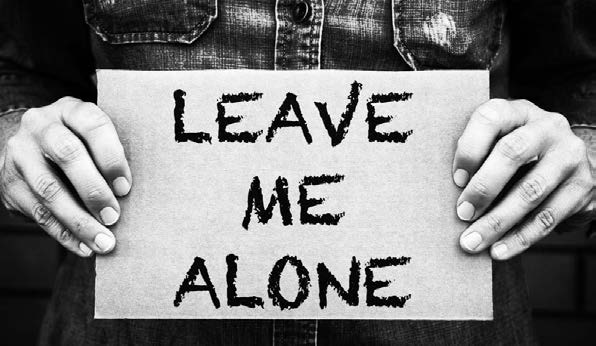
When you live with the abuser
Avoid being alone with the abuser and teach your children or persons you stay with how to get help when a violent attack occurs.
- Quickly apply for a protection order.
- If necessary, ask the magistrate not to disclose your new residential address, or to allow the abuser to enter your shared residence or part thereof, for example, the main bedroom.
- Upon violation of the protection order, quickly report such violation to the nearest police station. Go to the police with a copy of the order and the suspended warrant of arrest.
Your emergency items:
Make sure that all your important documents are with you when you are planning your escape. These items include;
- ID book, driver’s licence/passport.
- Certified copy of protection order/maintenance number.
- Medical aid, hospital/or clinic card.
- Duplicate keys, taxi fee, or a bus/train ticket.
- Cash or bank cards, e.g. ATM, credit or cheque card.
How a survivor of abuse is behind bars
How a survivor of abuse is behind bars angenithaGet out of a toxic relationship while you still can, is the advice of a woman who received a life sentence for having her violent husband killed.
Holding on to a toxic marriage landed a woman in jail for life.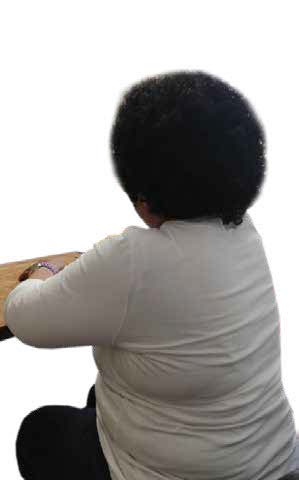
Eunice* (57), who asked that her real name not to be used, said she hired people to kill her husband about 15 years ago, because she could no longer endure the abuse.
She said her husband used to abuse her physically, sexually and emotionally.
“He used to hit me and I would call the police. They would tell me to open a case but I was too scared to do so. I once tried to fight back but he beat me to a pulp,” she said.
“Sometimes I would find evidence in the car that indicated he was cheating. All these things were torturing me. I just felt that my life was at stake,” she said.
“He involved our children in a lot of things that were not right and I was worried that one day my children would be abused or killed because of his reckless behaviour,” she said.
In an effort to save their marriage, Eunice said they both tried a number of ways to resolve issues and to get him to stop abusing her but nothing seemed to work.
She said they consulted professionals, church leaders and involved both their families, but the abuse continued.
“When we consulted other people, he would admit that he was doing all those things but would ask for another chance to fix things. However, he never stopped abusing me,” she said.
They were married for 11 years and for the last six years she was abused. She said most of their problems started when they got better jobs and more money.
“I tried to divorce him. He would ask our families to convince me otherwise. Our church also does not condone divorce. So I stayed,” she said.
“There was a time when I left him and went to stay with my mother; the plan was to never go back. I was pregnant with my last born child at the time. Not willing to let me go, he too moved into my mother’s house. We stayed there for two years until my mother said we should go back to our house because he had changed,” she said.
However, the abuse continued behind the closed doors of their home until one day, Eunice snapped. The killing of her abuser ended the pain she had endured at this hands, but unleashed another kind of pain that will never go away – the pain of incarceration and not being able to be with her children.
“If you see that you can no longer be with someone or they are abusing you, do not feel sorry for them, do not be embarrassed, and do not fear the unknown, just leave,” she said.
Jobs: Compensation Fund
Jobs: Compensation Fund LondekileExternal advertisement: Sessional Health Professionals for the Compensation Fund
- Occupational Medical Practitioners;
- Occupational Medicine Specialists
- Specialist Psychiatrists;
- Clinical Psychologists;
- Registered Professional Nurses;
- Physiotherapists;
- Occupational Therapists;
- Medical Claims Assessor
Employment Type: Sessional.
Note: These are not permanent positions on the establishment of the Compensation Fund nor the Department of Labour. Successful candidates will be engaged on the availability of the Practitioner self and as and when required by the Fund.
Centre(s)
Compensation Fund Head Office (Pretoria)
Provincial Offices – Gauteng; North West; Mpumalanga; Limpopo; Free State; Kwa-Zulu Natal; Northern Cape; Eastern Cape & Western Cape
Reference Number: MS 10/1/2/3/2018
Remuneration
- Occupational Medical Practitioner – R 749.00/ hour
- Occupational Medicine Specialist – R 749.00/ hour
- Specialist Psychiatrist – R 749.00/ hour
- Clinical Psychologist – R 749.00/ hour
- Physiotherapist/Occupational Therapist – R 232.00/ hour
- Registered Professional Nurse – R 483.00/ hour
- Medical Claims Assessors – R 125.00/ hour
Enquiries: Dr Lucas Mosidi/ Ncumisa Ntsunguzi, Tel: (012) 406 5856
Requirements
A relevant clinical/ medical qualification at NQF Level 6/7 in the relevant discipline. Five (5) years relevant experience in Occupational Health or Medicine, Medico-legal field, Vocational Rehabilitation; Medical Aid Environment, Insurance &/or Claims Environment. Registration with HPCSA/SANC or relevant professional body.
Occupational Medical Practitioner – MBChB or equivalent with post-graduate Diploma in Occupational Health Medicine.
Occupational Medicine Specialist – MBChB or equivalent with post-graduate specialist medical degree in Occupational Medicine.
Registered Professional Nurse – BCur/BNurSci or equivalent with postgraduate qualification in Occupational Health Nursing, Critical Care, Emergency Care or Primary Health.
Specialist Psychiatrist – MBChB or equivalent with post-graduate specialist medical degree in Psychiatry.
Clinical Psychologist – BSocSci (Psych) or equivalent. Physiotherapist – BPhysio or equivalent.
Occupational Therapist – BOccTher or equivalent.
Medical Claims Assessor – B(PubAdm) or equivalent.
Knowledge
Compensation Fund objectives and business processes; Required information technology knowledge; COIDA; Relevant Fund Policies, Circular Instructions and procedures; ICD 10 Coding; COID Medical Tariffs; AMA Guides Impairment Evaluation.
Legislative requirements
Occupational Health and Safety Act; PAJA; POPI; COID Act; National Health Act; Mental Health Act; Basic Conditions of Employment Act; Employment Equity Act; Public Service Act; Public Finance Management Act.
Skills
Requisite technical skills; Report writing; Decision-making; Problem-solving and analysis.
Duties
- To adjudicate on all claims including complex medical claims, both legacy and current, using relevant circular instructions, guidelines and standard operating procedures of the Fund;
- To assist with the pre-authorisation of assistive devices and prosthesis;
- To pre-authorise specialised procedures, treatment and interventions in line with the Fund’s Managed Care policy;
- To provide medical advice on Permanent Disablement (PD) on unscheduled diseases and injuries;
- To advice on case management of selected medical cases in line with the Fund’s Managed Care policy;
- To assist with both pre-authorisation and advice on requests for re-opening of previously finalised claims;
- To give specialist input into litigation cases brought to the Fund;
Closing date for applications: 30 November 2018
Applications must submit recently updated, comprehensive CV as well as recently certified copies of all qualification(s) including an ID-document [Driver’s license where applicable]. Non-RSA Citizens/Permanent Resident Permit Holders must attach a copy of their Permanent Residence Permits to their applications. Should you be in possession of a foreign qualification, it must be accompanied by an evaluation certificate from the South African Qualification Authority (SAQA). Correspondence will be limited to short-listed candidates only. If you have not been contacted within eight (8) weeks after the closing date of this advertisement, please accept that your application was unsuccessful. Successful candidates will be appointed on a 5-year sessional period. The Department reserves the right not to make any appointment(s) to the above posts. The successful candidates will be expected to attend an information session conducted by the Fund and sign a contract of service agreement.
Applications
Director: Medical Services: PO Box 955, PRETORIA, 0001 or hand deliver at 167 Thabo Sehume & Madiba Street, Delta Heights Building, OR by
Email: Lucas.Mosidi@labour.gov.za or Ncumisa.Ntsunguzi@labour.gov.za
For attention: Dr Lucas Mosidi: Medical Services Directorate, Compensation Fund
Jobs: Department of Labour - Nov 2018
Jobs: Department of Labour - Nov 2018 LondekileERRATUM: Kindly note the post of Deputy Director: HRD and Performance Management Reference No: HR4/4/4/10/09 advertised on the 1st Edition of Vukuzenzele November 2018 closing 19 November 2018 has been withdrawn. Enquiries: Ms. KJ Ntshingane, Tel: (011) 853 0300
Assistant Director: IES (SR 10)
Labour Centre: Pretoria
Reference No: HR4/4/4/10/10
Salary: Commencing: R 444 693 per annum
Enquiries: Ms. A Phasha Tel: (012) 309 5050
Provincial Office: Chief Director: Provincial Operations: PO Box 4560, Johannesburg, 2001
Deputy Director: Labour Centre Operations
Centre: Labour Centre: Postmasburg
Ref No: HR4 /4/8/353
Salary: All Inclusive: R 826 053 per annum
Enquiries: Mr. ZL Albanie Tel: (053) 838 1500
Provincial Office: Chief Director: Provincial Operations: Private Bag X 5012, Kimberley, 8301
Principal Inspector: Employer Audit
Centre: Provincial Office
Ref No: HR 4/4/6/18
Salary: Commencing: R444 693.00 per annum
Enquiries: Ms. T Maluleke Tel: (015) 290 1768
Applications: Chief Director: Provincial Operations: Private Bag X 9368 Polokwane
Closing date for applications: 3 December 2018
For full details of the advertised posts visit our website: www.labour.gov.za
Applications must be submitted on form Z83, obtainable from any Public Service Department or on the internet at www.gov.za/documents. The fully completed and signed form Z83 should be accompanied by a recently updated, comprehensive CV as well as recently certified copies of all qualification(s) including a Senior Certificate and ID-document [Driver’s license where applicable]. Non-RSA Citizens/Permanent Resident Permit Holders must attach a copy of their Permanent Residence Permits to their applications. Should you be in possession of a foreign qualification, it must be accompanied by an evaluation certificate from the South African Qualification Authority (SAQA). Applicants who do not comply with the above-mentioned requirements, as well as applications received late, will not be considered. The Department does not accept applications via fax or email. Failure to submit all the requested documents will result in the application not being considered. Correspondence will be limited to short-listed candidates only. If you have not been contacted within eight (8) weeks after the closing date of this advertisement, please accept that your application was unsuccessful. Suitable candidates will be subjected to a personnel suitability check (criminal record, citizenship, credit record checks, qualification verification and employment verification). Where applicable, candidates will be subjected to a skills/knowledge test. All shortlisted candidates for SMS posts will be subjected to a technical competency exercise that intends to test relevant technical elements of the job, the logistics of which be communicated by the Department. Following the interview and technical exercise, the selection panel will recommend candidates to attend generic managerial competencies using the mandated DPSA SMS competency assessment tools. Successful candidates will be appointed on a probation period of 12 months. The Department reserves the right not to make any appointment(s) to the above post. The successful candidate will be expected to sign a performance agreement. The Department of Labour is an equal opportunity affirmative action employer. The employment decision shall be informed by the Employment Equity Plan of the Department. It is the Department’s intention to promote equity (race, gender and disability) through the filling of this post(s) with a candidate whose transfer / promotion / appointment will promote representativity in line with the numerical targets as contained in our Employment Equity Plan.
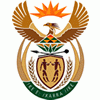
Know the different types of abuse
Know the different types of abuse angenithaIf you are in an abusive relationship or a child in your care is being abused, you can take steps to protect yourself or the child by approaching the courts or reporting the matter to the South African Police Service.
The Domestic Violence Act gives victims of domestic violence the maximum protection the law can provide. Abuse occurs in different ways and it is vital for women to understand the different types of abuse to protect themselves.
Domestic violence occurs when a person is subjected to:
Physical abuse: for example, when you are assaulted or threatened with violence.
Sexual abuse: When a victim is raped or forced to perform or watch humiliating sexual acts.
Emotional, verbal and psychological abuse: This occurs when a person is subjected to constant insults, ridicule or name-calling.
Economic abuse: This can happen when a victim is prevented from earning an income.
Intimidation: An example of intimidation is when a victim receives threatening and fearful messages or SMSes.
Harassment: for example can be in the form of repeatedly receiving phone calls or being constantly watched which causes victims to be afraid.
Stalking: This happens when your abuser repeatedly follows you or demands to talk to you against your will.
Damage to property: An example is when your abuser intentionally damages your property without your consent.
Any other controlling or abusive behaviour that causes you harm or threatens your safety, health or well-being is abuse.
The person abusing you can be anyone you have a domestic relationship with by blood, marriage or adoption. This includes your spouse, live-in partner, adoptive parent or child, housemate or family member. It may also be someone you used to date or you were engaged to.
If you are being abused or suspect that someone is being abused call:
- Police on 10111
- Childline on 0800 055555
- Stop Women Abuse Hotline on 0800 150 150
- Lifeline on 0861 322 322 or (021) 461 1111.
This information was supplied by the Department of Justice and Constitutional Development.
Let's fight femicide together
Let's fight femicide together LondekileTraditions and gender norms prevent women from enjoying their human rights, which in turn continues the cycle of violence against women. Intimate femicide is often the result.
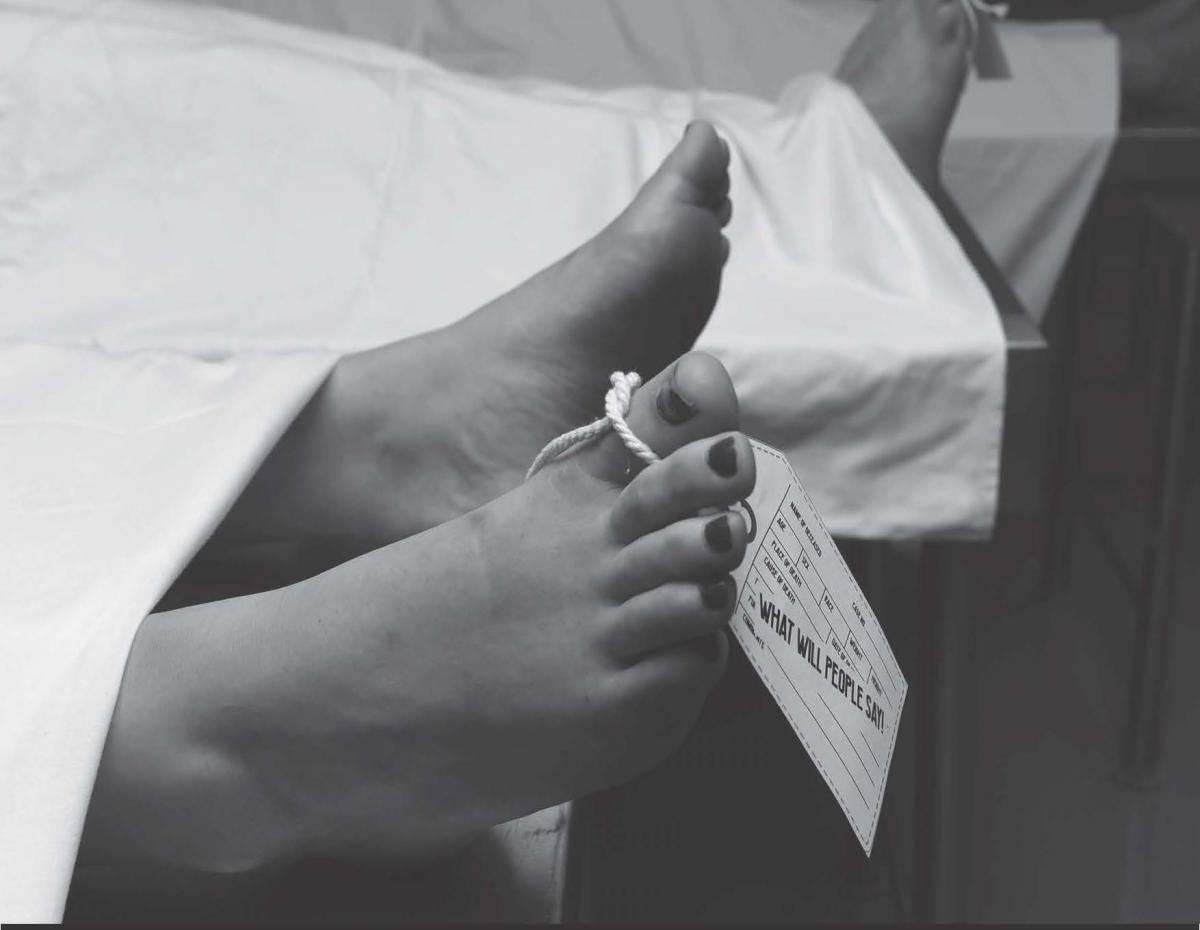
According to studies done by the Medical Research Council, South Africa has one of the highest global rates of intimate femicide – which is defined as the murder of women by their current or ex-partner, same-sex partner or a rejected would-be lover.
While a few high-profile cases – like that of Karabo Mokoena and Zolile Khumalo – dominate the news, femicide is all invasive and often slips by unnoticed.
Mokoena’s boyfriend Sandile Mantsoe was sentenced in May 2018 to over 30 years in jail for her premeditated murder and assault as well as for defeating the ends of justice by burning her body.
Hardly 24 hours after this conviction, Khumalo – a first-year quantity surveying student – was shot dead, allegedly by her former partner.
Sadly, incidents like these happen far too often. Intimate femicide claims the life of a woman every eight hours. According to a Stats SA survey published in May 2017, one in five women over 18 have experienced violence at the hands of their partner.
Intimate femicide is sometimes followed by the suicide of the perpetrator. In August, just outside Giyani, a man shot and killed his girlfriend and stabbed his wife with a sharp object before shooting himself.
HIV-related intimate femicide is when a woman is killed by an intimate partner to prevent word getting out that either he or she has HIV.
One of the most horrific crimes is ritual femicide in which a woman or girl is killed to obtain some of her body parts for muthi.
According to the Department of Justice and Constitutional Development
(DoJ&CD), intimate femicide is often a result of deeply-rooted patriarchal beliefs and practices which cast men as superior to women.
The DoJ&CD has a fundamental role to play in ensuring that femicide is addressed, in partnership with all relevant stakeholders.
In August 2016, the DoJ&CD launched the Anti-femicide Movement, in partnership with Tshwaranang Legal Advocacy Centre and other government stakeholders.
The aims are to de-stigmatise domestic violence, encourage early reporting and intervention, raise awareness of intimate femicide and put frameworks in place to combat it.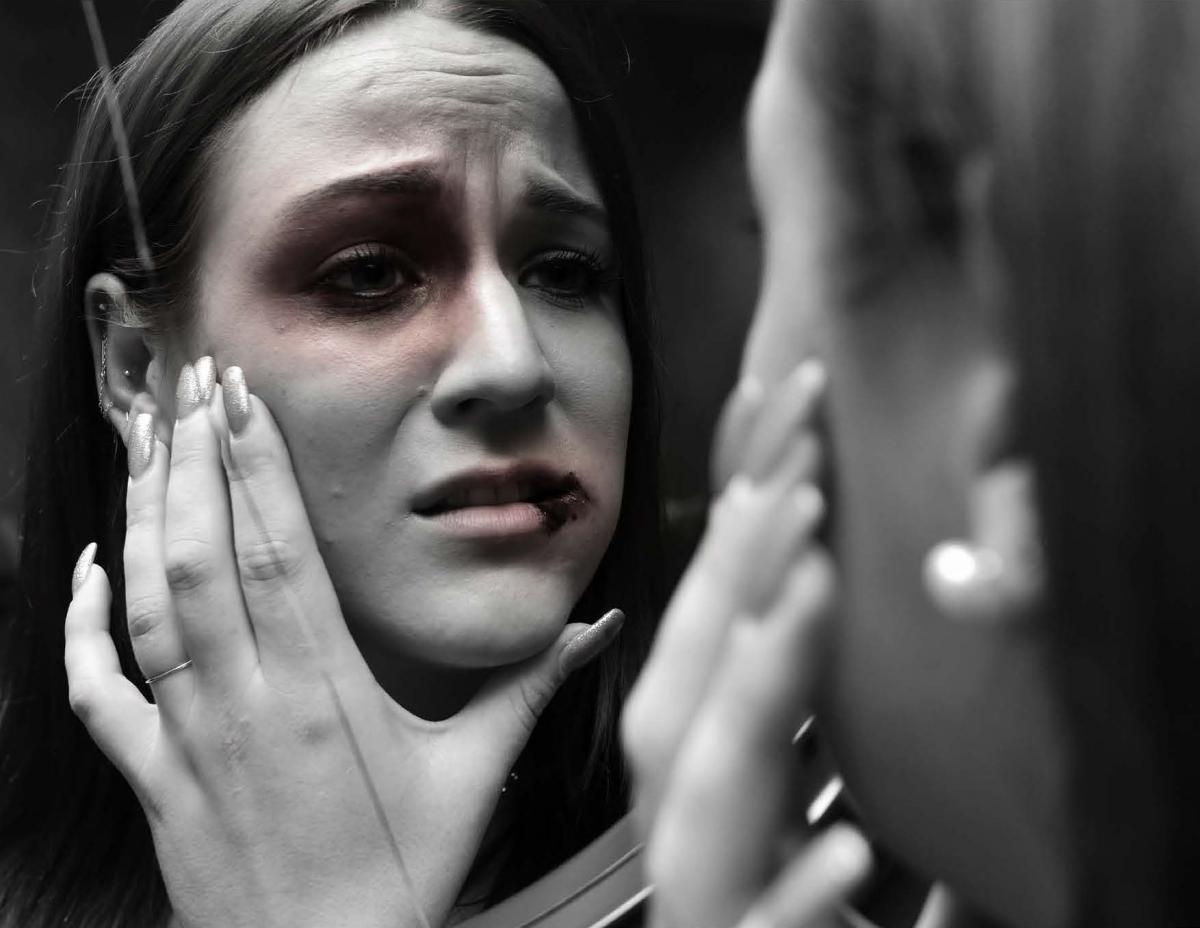
An important intervention is the launch of a Femicide Watch in response to a report compiled by the UN Special Rapporteur on Violence Against Women, its Causes and Consequences..
The report made reference to the country’s rate of femicide and intimate femicide and criticised South Africa for its poor response to these cases.
Launched early last year, Femicide Watch is intended to capture all femicide cases, determine trends and profiles of offenders and victims; develop response and prevention policies, laws and programmes; and channel intervention resources to areas of need.
The ultimate goal is to safeguard each woman’s right to dignity, her right to be treated as an equal and her right to access to justice without fear or judgement.
Moving on after rape
Moving on after rape LondekileRape is an act of violence and violation, and leaves survivors feeling confused, angry and overwhelmed. It is difficult to know what to do in the wake of such an ordeal, but there are immediate steps you can take after being raped that will ensure you get help and that the perpetrator is arrested.
Immediately after a rape
Your first response should be to get to a safe place as soon as possible, advises the TEARS Foundation, which offers crisis intervention, counselling, and prevention education services for those affected by domestic violence, sexual assault and child sexual abuse. 
According to the TEARS website, it is advised that you contact a trusted friend or family member. This person will become the “first witness” who will have to accompany you and make a statement to the police about your condition.
Do not shower, bath, eat, drink, wash your hands or brush your teeth after being raped, even if you want to. Hair, blood or semen on your body or clothes can be used as evidence of rape. You must be examined by a doctor first.
Falling pregnant after rape
Falling pregnant is one of the biggest fears experienced by survivors of rape. Should a woman fall pregnant after being raped, she may decide to abort or give the child up for adoption after giving birth.
Tshwane Medico Legal Crisis Centre clinical psychologist, Dr Adel Ras, explained the options available to women who fall pregnant after being raped.
“During a rape survivor’s medical treatment, she will undergo several tests. These include the HIV tests, tests for STD and a pregnancy test. It is difficult to tell during the first 72 hours if she is pregnant, so the test is done during follow-up treatment. If the test is positive, and the woman wishes to abort the pregnancy, the doctor will refer her to a clinic that will counsel her on the termination of pregnancy procedure and the consequences of the procedure,” said Ras.
Oral medication to terminate the pregnancy is often administered early on. In South Africa, women who fall pregnant as a result of rape are legally allowed to terminate the pregnancy up to the 20th week.
“Women who decide to keep the child often consider adoption. In this case, we get the assistance of a social worker who will counsel her and provide information on adoption. Once she has given birth, the child is put into the foster care system.”
Abandonment of infants in South Africa is a common occurrence. It is for this reason that organisations such as Door of Hope Children’s Mission in Johannesburg, Shepherd’s Keep in Durban, and Ubuntu House exists in Cape Town. Such places exist as a safe drop-off point for unwanted babies and to prevent babies being left in dangerous environments.
For more information call:
Door of Hope
082 783 3374
Shepherd's Keep
031 466 1045
or 084 581 2453
Ubuntu House
021 592 0610
NGOs open their doors to help victims of violence
NGOs open their doors to help victims of violence angenithaSouth Africa has a number of organisations which survivors of gender-based violence can approach for counseling and the healing process, after being abused. In view of the 16 Days of Activism for No Violence Against Women and Children campaign, Vuk’uzenzele compiled a list of places you can go to when you need help.
People Opposed to Women Abuse, or Powa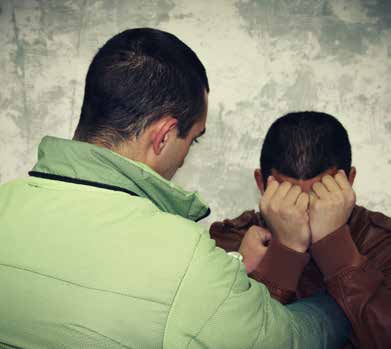
Powa provides counselling, both telephonically and in person face-to-face, as well as legal assistance to women who have been abused.
Website: https://www.powa.co.za/POWA/
Phone number: 011 642 434/6
Childline South Africa
This non-profit organisation helps abused children and their families. It deals with issues such as physical and sexual abuse, substance abuse, behavioural problems and trafficking, and gives legal advice.
Website: http://www.childlinesa.org.za/
Toll-free helpline: 0800 055 555
Child Welfare South Africa
Child Welfare South Africa focuses on child protection, child care and family development. Neglect and child abuse can also be reported to them.
Website: http://childwelfaresa.org.za/
Phone number: 074 080 8315
Family and Marriage Association of SA, or Famsa
Famsa provides counselling and education to help improve marriages and family. It provides assistance in cases of domestic violence and trauma, divorces and mediation. Famsa has offices throughout the country.
Website: http://famsa.org.za/
Phone number: 011 975 7106/7
Tears Foundation
Founded in 2012, this non-profit organisation provides a database of medical, legal and psychological services available in South Africa to help those who have been raped or survived sexual abuse.
Website: https://www.tears.co.za/gbv-domestic-abuse/
Phone number: 010 590 5920
Gender-Based Violence Command Centre
The Department of Social Development opened a Gender-Based Violence (GBV) Command Centre in November 2013. It operates 24 hours a day and is operational all year long to assist victims of gender-based violence.
The command centre can be reached in a number of ways, including on their emergency toll free number on 0800 428 428, or by sending a please call me to *120*7867#
You can also skype contact where you can add Help Me GBV to your skype contacts and send a message. This platform is also used to help victims in the deaf community who use South African Sign Language to communicate.
Other options are to SMS Help to 31531, or to visit www.gbv.org.za
Pupils invent life-saving fire rescue robot
Pupils invent life-saving fire rescue robot angenithaFirefighters are everyday heroes who often risk their lives while carrying out their duties. In September, three firefighters tragically died while battling a blaze at the Bank of Lisbon building in the Johannesburg City Centre.
The tragedy inspired two bright young students from Mpumalanga to invent a rescue robot that has the potential to make the work of firefighters that much safer.
Grade 9 learner Trevor Simelane and Grade 10 learner Joseph Mdluli are from the Mandlesive Secondary School in the township of Kanyamazane.
The pair of inventors designed the robot for their entry into the 2018 Hip2b2 3M Innovation Challenge. Supported by the Department of Basic Education, the challenge seeks to encourage high school pupils to explore the fields of maths and science.
Simelane and Mdluli’s invention impressed the judges so much that the boys were crowned winners of the 2018 challenge.
Built from recycled materials, the robot has the ability to get inside dangerous burning buildings, navigate obstacles and search for trapped people.
“The advantages of our fire rescue robot extend to absorbing smoke with a smoke pump and providing oxygen to people who have just been rescued from the fire,” said Simelane.
Two of the firefighters from the Bank of Lisbon fire died from smoke inhalation, which caused a lack of oxygen. The third was killed when he fell from a ledge while trying to escape the dense smoke. Mdluli said that the robot has been designed to prevent such accidents.
“One of the other advantages of a robot is that it can safely go to places that are risky for humans. There are no risks of suffocating, getting lung and respiratory damage or burns and injuries from the building collapsing. It is built to absorb pressure and deliver results within a short period,” Mdluli explained.
The Hip2b2 Challenge saw hundreds of learners from around the country entering. Simelane and Mdluli faced strong competition from the two other final teams.
Sisters Nomvula and Elizabeth Ledwaba developed a solar energy bookcase which can light up a desk for learners to study without electricity. Meanwhile, Hudson Mashaninga and Thokozani Mlauzi created a backpack that stores litter.
Rape survivors find their voice
Rape survivors find their voice angenithaMother and daughter Karmilla Pillay-Siokos (44) and Athena Evangeline Siokos (17) have both been raped. Their journeys of healing and hope are an inspiration to others.
Karmilla was raped at 18, while Athena fell victim to her rapist at age 12.
“It is difficult to describe the impact of something as traumatic as rape. I have always been a fighter and martial arts was one of my favourite sports. "Being raped by ‘a friend’, in a situation where I couldn't fight back, was a huge knock to my self-confidence. It took a long time for me to realise that it was not my fault.
“The initial impact was fear, shame and guilt. When I found my voice, I was inspired to change the way we socialise our children and create awareness around the issues of victim blaming and our attitudes towards female sexuality,” said Karmilla.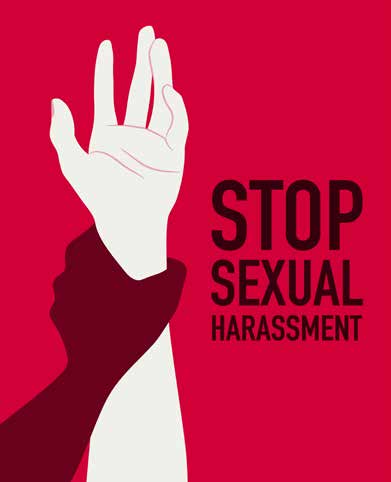
Invisible and withdrawn
Athena on the other hand fell into a goth phase. She wore all black and was quiet and withdrawn. “I made myself invisible so that no one would pay attention to me and single me out. I sometimes still do this, but my biggest step towards healing was dyeing my hair bright purple. It took two years to speak about my experience,” she said.
The first time Karmilla said ‘I was raped’ was in an argument with her mother, who didn’t like the way she was living her life. After trying therapy, which didn’t work, Karmilla moved out. Soon af-ter, she met her husband and the next stage of her recovery began. “He respected me and was the first man I talked to about the rape. Later, pregnancy and childbirth had a profound impact on my attitude towards sex. It became a physical expression of love and was extremely healing.”
Finding her voice
Karmilla got involved with Slutwalk Johannesburg and did her first Slutwalk in 2011.
SlutWalk is a protest march calling for an end to rape culture, including victim blaming and shaming of sexual assault victims. “I finally let go of the guilt and shame and felt completely healed. I vowed to do everything I can to offer this freedom to other survivors.”
Both women stress that everyone’s healing journey is different. “Some days I can get up on a stage and tell everyone, but on other days dropping my pen is enough to make me want to cry. Rape is an intimate violation that affects us on so many levels,” said Athena.
But there is hope
“As clichéd as it sounds, it does get better. First, you feel like you’re falling into a bottomless pit and you will never see the light. You have to let it all in, don’t fight it. Wave after wave will try to drown you, but you will learn to swim. "You may never get all the way out of the water, but every new coping mechanism and the people we let ourselves trust will take us closer to the shore,” she added.
Karmilla attributes The TEARS Foundation, a Non-Profit organisation which assists and provides a support network for survivors of rape, as playing a key role in her healing.
Rape victims must know their rights
Rape victims must know their rights LondekileThe police must assist in any way they can to lessen the trauma for rape survivors.
The South African Police Service (SAPS) is committed to ensuring secondary victimisation does not take place when a rape survivor arrives at a police station to tell their story.
Despite a national framework guiding police officers on how to properly respond to victims of gender-based violence (GBV), abuse survivors are often reluctant to report the incident to the SAPS. It is therefore important that GBV survivors know their rights and understand what to expect from their local police officers.
A rape can be reported to the SAPS via the 24-hour emergency crime reporting centre on 10111, or by visiting your nearest police station.
The victim is permitted to have a person of her choice present during the interview and can expect to be interviewed in surroundings that are either familiar or reassuring.
Once the police have received enough information a docket must be opened, registered on the Crime Administration System and an affidavit must be made in which the following must be clearly specified:
- The time, date and place of the offence,
- The nature of the offence and manner in which it was committed,
- The first person that the abuse survivor told of the attack,
- Any details regarding the alleged offender(s) or possible witnesses who may assist in apprehending the suspects.
A medical examination may be needed to establish whether there is any evidence that could be helpful in court. It is therefore essential that the victim be examined without delay – even if the attack took place more than 72 hours before, or the survivor has already washed.
The medical examination will be conducted at the state's expense and by a medical professional. No man may be present during the medical examination of a female victim, and vice versa. Even a member of the same gender may only be present during the medical examination if the victim agrees to it.
Victim after-care
The victim of a sexual offence has had a traumatic experience and will more than likely need some form of counselling.
If the victim is a child, a member trained by the Family Violence, Child Protection and Sexual Offences (FCS) unit or a specialised individual must be contacted. It may be decided that it is in the best interests of the child to be removed and taken to a place of safe care.
It is the responsibility of the investigating officer to:
- Provide the victim with the details of medical and counselling services available in the area and reasonable assistance to access them, and
- Ensure that appropriate steps are taken to safeguard children or other vulnerable victims.
The investigating officer will keep the victim informed of any developments in the case and must explain the court process to the victim in order to prepare her for the court hearing.
On the day of the trial or earlier, if the victim requests it, the investigating officer will hand the victim copies of her statements to read through to refresh her memory.
Remember:
- The name of a rape victim may not be released by the media.
- Any person who has knowledge of the sexual abuse of a child or a mentally disabled person is legally obliged to report the incident to the police.
- If you have been a victim of a sexual offence, do not wash, change your underwear or rinse your mouth until you have had a medical examination.
- No victim may be turned away because the offence took place a long time ago or was committed in the station area of another police station.
TCC a safe haven after trauma
TCC a safe haven after trauma LondekileThe trauma of abuse is something that no woman should have to endure. Thuthuzela centres are there to walk the painful journey of healing with survivors of abuse.
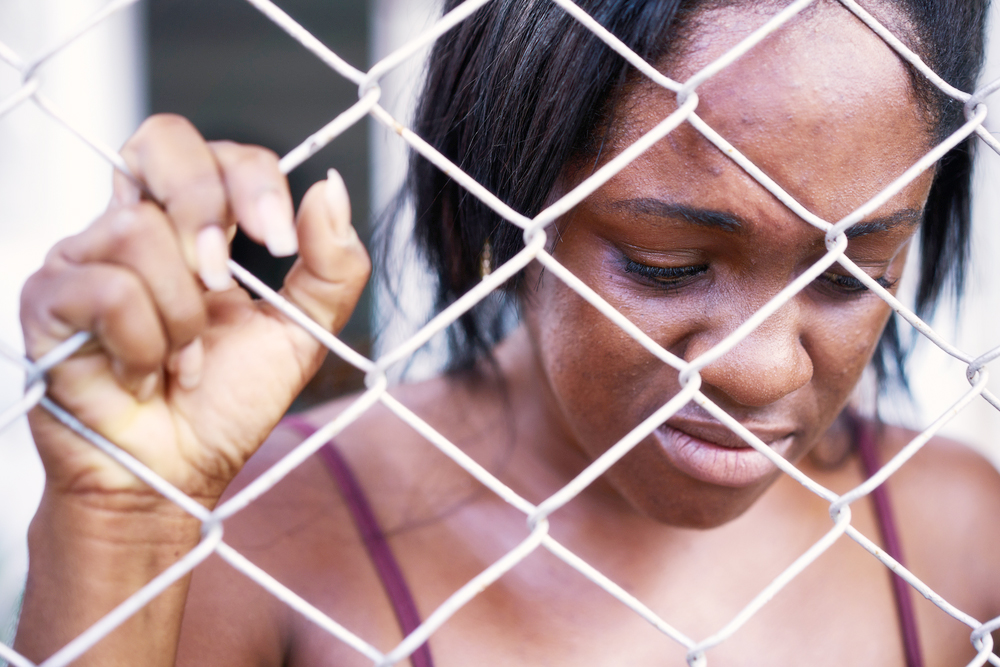
Most TCCs operate at public hospitals, clinics, or police stations and are close to communities where incidences of rape are particularly high. They are also linked to Sexual Offences Courts.
TCCs are open 24 hours a day, seven days a week and a rape case can be reported directly at a TCC.
When a victim walks into a TCC they receive immediate medical attention, which includes a medical examination, counselling, medication to prevent HIV and pregnancy.
There are 57 TCCs across South Africa that provide specialised services and support to the survivors of sexual violence, and help them to find justice in court.
The TCCs also offer a child-friendly environment from the start - from the crime-reporting stage all the way to follow-up victim support services.
The centres are a critical tool in government’s integrated strategy to combat sexual violence. The centres link police stations with clinics and hospitals and the offences courts.
But the centres’ most important role is to support victims. The philosophy is respect, comfort, restoring dignity and ensuring justice for children and women who are victims of sexual violence.
Trained counsellors are with the victim throughout at the police station and in the ambulance. At the TCC, they are met by a social worker who explains the next steps. These are a visit to the doctor, a shower and a change of clothes, and a statement to a trained special victims police officer.
While the victim is giving a statement, the doctor prescribes and dispenses medication – including emergency contraceptives and anti-retrovirals – and sets up an appointment for a return visit. Once the process is complete, the counsellor takes the victim home, or to a place of safety.
For more information visit: www.gov.za/TCC
Trafficked by aunt for pornography
Trafficked by aunt for pornography LondekileConned into coming to South Africa from Lesotho by family members, a young girl was kept as a sex slave.
For two years, Malerato* was kept in a flat in Johannesburg, as a sex slave.
She was only 16 and in grade 10 when her aunt and cousin trafficked her from Lesotho to South Africa in 2015, by promising her a chance to further her education.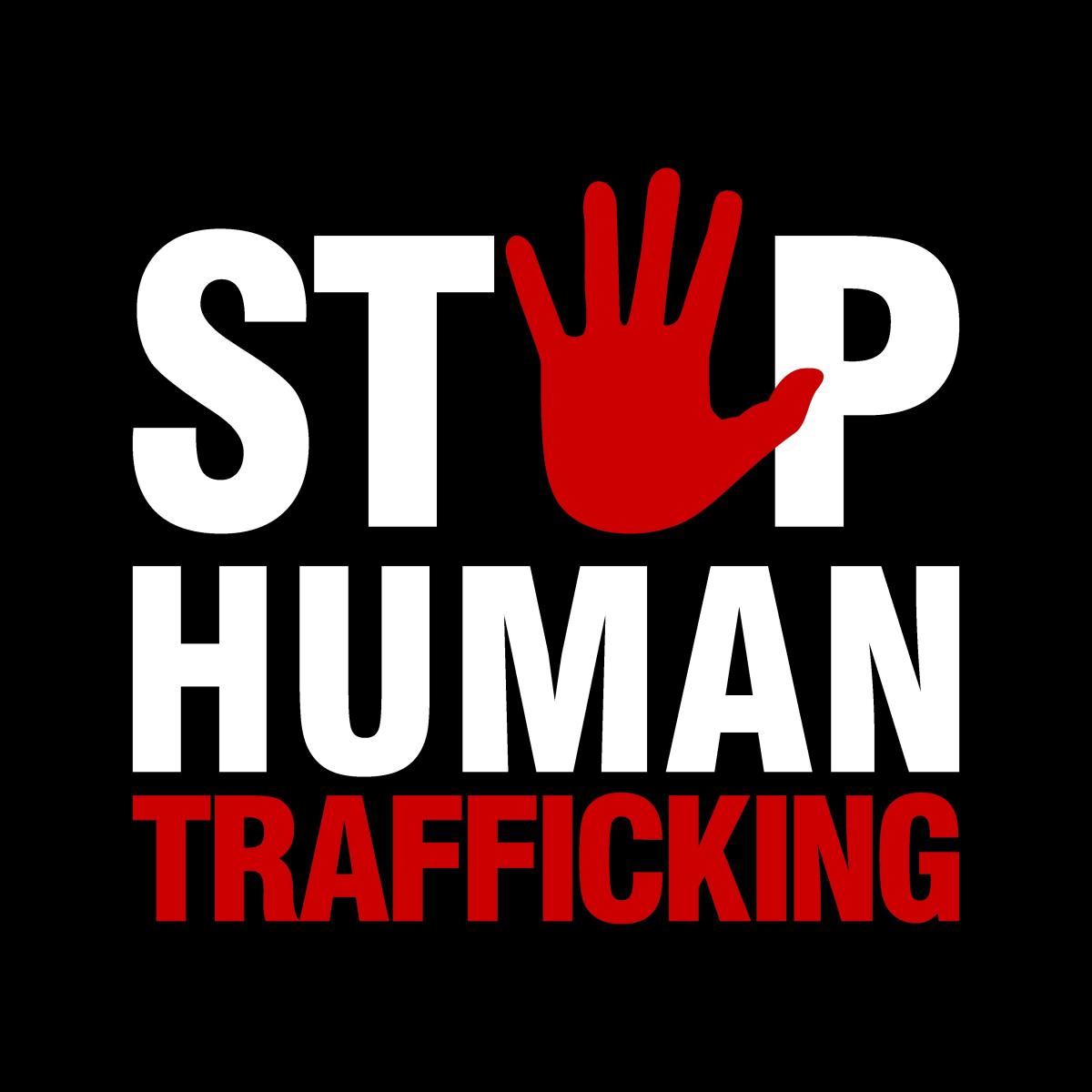
Malerato’s parents died when she was seven-years-old and she was placed in the care of her grandmother. “She struggled to keep me in school because she could not afford school fees,” Malerato explained.
But in 2015, her cousin and her aunt, who had been staying in Johannesburg, learned about her vulnerable state and decided to pay her a visit.
“They told us that they would take me to a good school in South Africa. My grandmother and I agreed. I was excited about it. But when I arrived in South Africa, it was a different story. I was forced to do web pornography and have sex with their clients. I suffered in silence because I was told that if I spoke to anyone or told the police, I would be arrested because I am a foreigner. I believed them. I was scared because I knew nothing about South Africa,” she said.
“I could not believe that my sister’s mother and my cousin could do this to me. I did not know what to do and I was always scared because they kept reminding me that I was a foreigner,” she added. Malerato’s cousin would hit her if she did not co-operate. “They saw me as something, not someone, and would use me as they saw fit,” she said.
She said they had online clients from all over the world and she would regularly be ordered to have sex with different men.
By 2017, she was more familiar with her surroundings as she had been allowed to go to the shops in the area a few times.
One day, she found the courage to go straight to the police station and tell them about her desperate situation.
“I no longer cared if I was arrested because I thought that prison would be more bearable. When the police told me that my case was one of human trafficking, I had no clue what they were saying, I just needed help. I only understood that I was trafficked later,” she said.
The alleged traffickers were arrested in 2017.
“I am proud because I was able to save myself and to prevent other vulnerable girls from being trafficked because I know they were looking for other girls,” she said.
She said anyone who may find themselves in a similar situation must scream for help and not worry about being arrested because being kept as a sex slave is much worse. Malerato said she dreams of having a matric and becming a pilot.
*Malerato not her real name.
We must respect women and children
We must respect women and children angenithaFrom the Union Buildings

A nation that does not revere its women and children is a nation that does not love itself.
The scourge of violence against women and children that has gripped our country must make us look deep into our souls and the values that drive our behaviour.
We come from a violent past, inflicted on us by a brutal, security-driven political sys-tem, but that does not make us a violent people at our core.
We are a nation bound together by the values of Ubuntu that dictate, among others, that we must respect women and protect our children.
Violence and abuse against women and children has no place in our society. 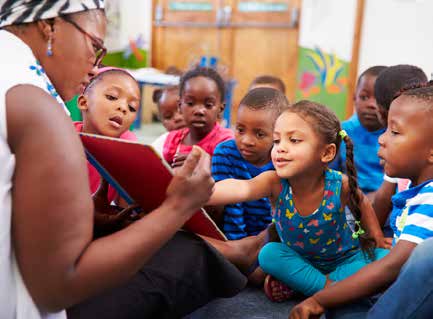
This month marks the start of the 16 Days of Activism for No Violence Against Women and Children campaign, which takes place from 25 November to 10 December.
The main objective of this campaign is for all South Africans to be active participants in stopping violent behaviour. This campaign is a high point in our 365-days-a-year effort to ride our society of victimisation of women and children.
We must all declare as citizens and members of families and communities that enough is enough.
Women have the right to be free of fear and abuse. Women have the right to safety, security, health, dignity and the integrity of their bodies.
This is not a nice-to-have. This is what our Constitution demands and what the law enforces.
It deeply saddens me that a number of women in our country have not had the opportunity to enjoy all the rights in the Constitution because they are abused.
Violence perpetrated against women is an offence against the founding values of the supreme law of the Republic, our Constitution.
When a woman suffers at the hand of a man, we should all spring into action to stop the violence, report perpetrators to the police, to community organisations, to employers and anyone able to intervene, and to offer victims and survivors the support they need.
Men must respect, honour and support women and this respect must be inculcated while males are still in their boyhood. We must intensify the campaign against gender-based violence.
Our liberation struggle was not just about ending national political oppression but also about ending oppression against women.
The liberation of women demands that those who are a source of life – women - are also freed from sexist and oppressive language that is packaged as truth or ancient wisdom.
The National Development Plan aspires to create a society where women can walk freely in the streets and children can play safely outside.
Government is working hard to end the scourge of violence on women and children.
The Integrated Plan of Action to fight Gender Based Violence 2013-2018, for instance, aims to transform attitudes, practices and behaviours.
It aims to ensure better access to support services for women and children at risk and provide long-term care, support and empowerment services for survivors of gender-based violence.
As part of a broader campaign to empower adolescent girls and young women, the “She Conquers” campaign works to reduce new HIV infections, teenage pregnancy, school dropout rates, and sexual and gender-based violence.
I have deep respect for the women of our country and I recently listened to their mov-ing testimony of abuse and inspiring outline of solutions at our first Presidential Sum-mit on Gender-based Violence and Femicide. The Summit was a gathering of, among others, traditional leadership, the artistic sector and other civil society groups. The Summit addressed the scourge of gender-based violence and femicide.
We must work together to tackle all crimes against women and children. Men in particular must take it upon themselves to rid our society of violence.
The struggle against gender-based violence cannot be left to government alone or to the public representatives.
It must be embraced by all South Africans – men, in particular, to ensure that we act decisively to end it.
If you are in an abusive relationship, speak out; if you are a perpetrator of violence, stop it and seek help; if you know someone who is being abused, report the crime.
Government calls on those aware of any crimes against children to contact the toll- free Childline on 0800 055 555 or Crime Stop on 086 0010111.
If you are a woman in distress or if you are in distress, the GBV Command Centre’s toll-free number is 0800 428 428 or (0800 GBV GBV).
It begins with you and me.Let us rise against abuse.
What to expect from a place of safety
What to expect from a place of safety LondekileA number of safe spaces exist to shelter and support victims of gender-based violence.
A victim of crime and violence whose life is thought to be in danger is eligible to be referred to a shelter by the South African Police Service (SAPS).
This is according to the Department of Social Development. While the majority of victims are women and children, some shelters also accommodate men overnight who are victims of crime and violence if their lives are in danger and then refer them to a more appropriate facility.
However, the department said shelters have a criteria that they use for admission that includes screening and assessing the victim at the point of entry.
According to the department, there are 130 shelters for victims of crime and violence. Gauteng has 25, Mpumalanga and the North West have 22 each, KwaZulu-Natal has 20, the Western Cape has 15, the Eastern Cape has 13, the Northern Cape has five, the Free State has seven and there is one in Limpopo.
What services are provided at a shelter?
Victims will receive various social support services that include basic needs such as accommodation, clothing or starter packs, transport and food; psychosocial services such as support, counselling, play therapy and therapeutic intervention (normally referred to as part of the healing and restoration programme); protection services like safety and security; life skills development; and vocational skills.
“Shelters also work with organisations that provide rehabilitative programmes for perpetrators,” the department said.
How to find the nearest shelter when in need?
Victims of crime and violence are expected to be referred to the shelters by the SAPS as prescribed by the Domestic Violence Act, Act No 16 of 1998.
Should a person be referred through another channel, such as the Department of Social Development’s local office, the Department of Health or traditional and religious leaders they should still be referred to the nearest police station.
The department has established White Door Centres of Hope which are community based. There are about 206 of these centres across the country. People in need of shelter can turn to these facilities, which are found across the country.
The department also has a Gender-based Violence Command Centre at national level, which can be accessed through the toll-free line 0800 428 428 (0800 GBV GBV), through a ‘please call me’ service – *120*7867#, by SMSing ‘Help’ to 31531 or via Skype – “HELPME GBV”.
The command centre has the ability to identify the exact location of the caller and the nearest service providers, including police stations for emergency referral.
The department has also established six Khuseleka One Stop Centres which not only provide a place of refuge for victims of crime and violence, but also provide various victim-support services in one space.
Services rendered at these centres include the reporting of a case to the police, receiving initial counselling, assessment by a professional social worker, medico-legal services by a qualified nurse and doctor, placement in a shelter if needed, access to ongoing psychosocial support and counselling as well as court hearing preparation, exposure to capacity building and empowerment through skills development.
What will the neighbours say?
What will the neighbours say? Londekile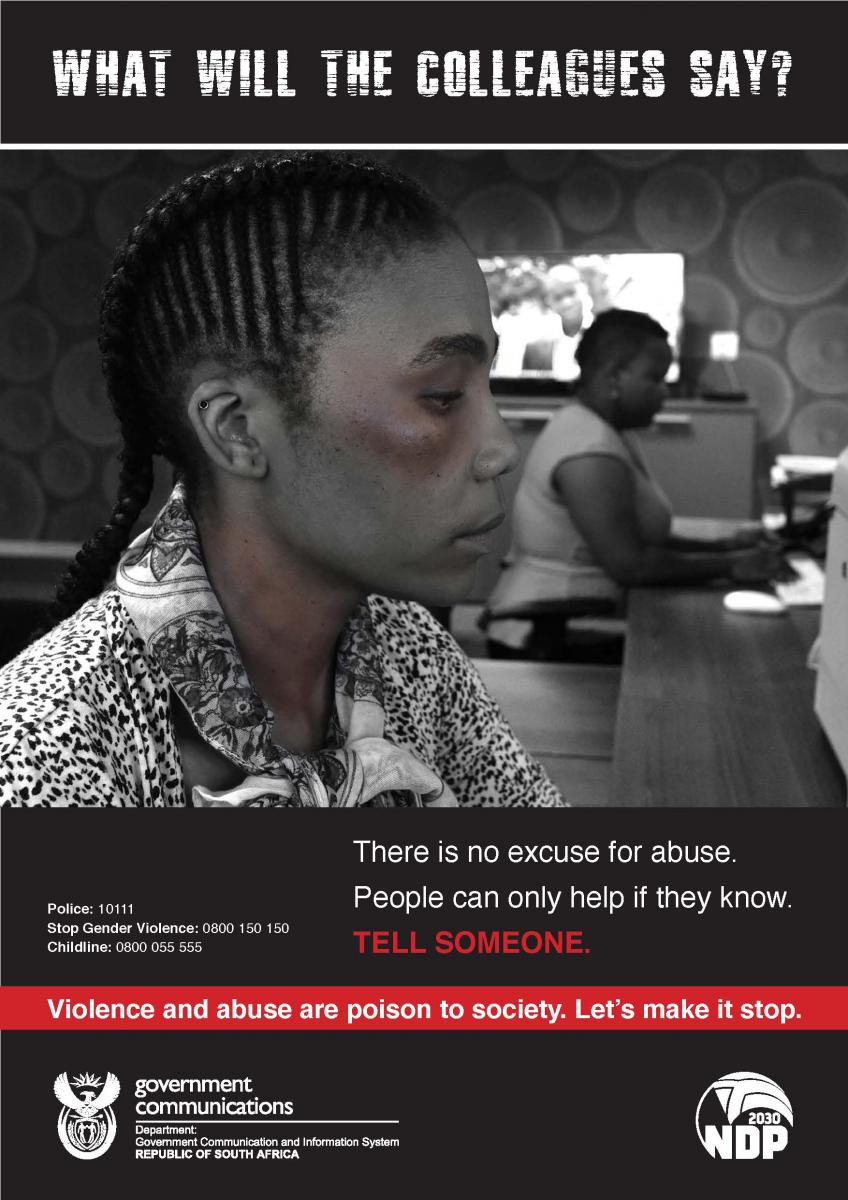
What you need to know about human trafficking
What you need to know about human trafficking LondekileHuman trafficking can be described as a modern form of slavery that is on the rise worldwide.
Human trafficking is the world's fastest growing criminal industry and it affects every nation across the globe. 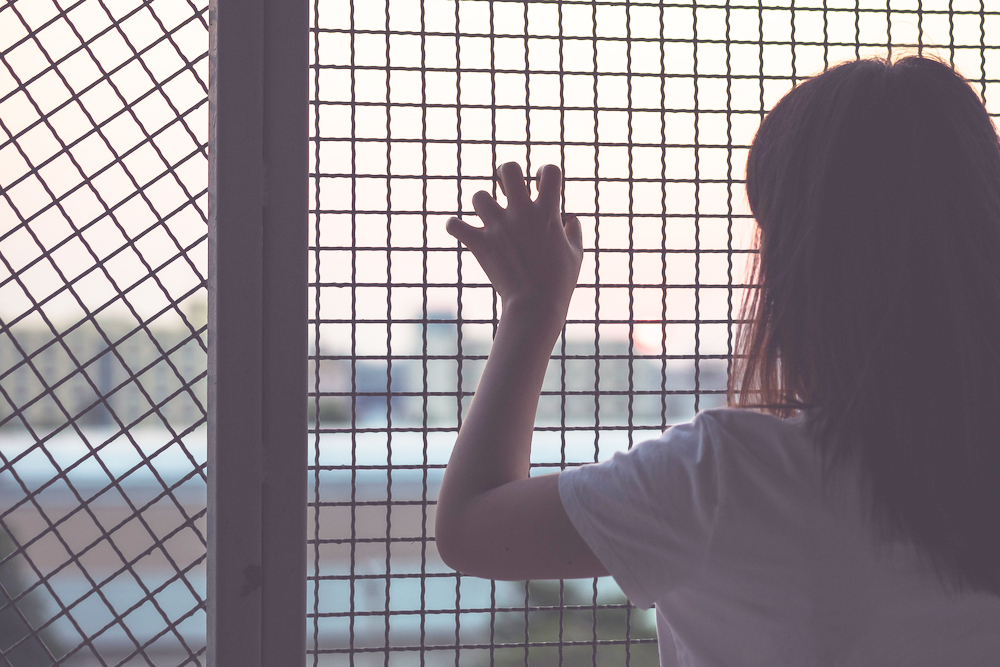
Human trafficking is the recruitment, control, and use of people for their bodies and for their labour.
“Through force, fraud, and coercion, people everywhere are being bought and sold against their will,” said A21 South Africa, an organisation that seeks to combat its practice.
The organisation works in partnership with service providers and international organisations and operates in 14 different locations across the globe, including South Africa.
Types of human trafficking
There are different types of human trafficking, including:
- Sex trafficking – forcing, deceiving, or coercing a person to perform a commercial sex act.
- Forced labour – forcing a person to work in captivity for little or no pay.
- Bonded labour – forcing a person to work for low wages to pay back an impossible debt.
- Involuntary domestic servitude – forcing a person to work and live in the same place for little or no pay.
- Child soldiers – forcing a child to participate in an armed force.
Methods used to recruit victims:
- False job advertisement
- Sold by family
- Abduction
- Trafficked by a friend
- False immigration
Did you know
False job advertisements lead up to 44.5 percent of trafficked persons in the country
For more information call the South African National Human Trafficking Resource Line on 0800 222 777
YES to a greener world
YES to a greener world LondekileThe North West’s Paul Borokelo says that, even when he is dressed well, he still picks up waste from the street because caring for the environment is a cause close to his heart.
Borokelo (30) from Koster in Kgetlengrivier Municipality, recently graduated from the Youth Environmental Services (YES) Programme with a National Diploma in Environmental Education, Training and Development Practice.
“People say I’m crazy for still cleaning up when I’m “dressed to kill”. But it’s what I do. I want to take care of the environment and live in a place that is clean, ,” said Borokelo.
The YES programme, an initiative of the Department of Environmental Affairs’ aims to create job creation, small business and skills development opportunities through the Expanded Public Works Programme (EPWP).
Twenty-eight candidates including Borokelo participated in the programme during 2015/2016 and 2016/2017, and were awarded the diploma from the Education, Training and Development Practices (ETDP) SETA, in partnership with the Department of Environmental Affairs, Delta Environment Centre, and the University of South Africa (UNISA). A further 120 participants graduated from the skills programme with 147 credits, and were awarded certificates of attendance.
Borokelo, who works as a general worker at SAPS Koster, joined the Yes Progamme in 2015, completing a certificate on the skills programme. He enrolled for the diploma course in 2016.
“I wanted to study but I didn’t have enough information or resources to do so. But I have a great love for the environment and our impact on it, so I jumped at the chance to join the programme,” Borokelo said.
Gaining the diploma was challenging but a good learning experience.
“We had to create business plans to open a waste recycling centre. It was tough but we wanted to make a difference,” said Borokelo.
Borokelo spent time educating the community on how and where to recycle waste material and identifying which waste material they could make money from. He also taught people how to manage their own waste production to minimise dumping on street corners.
“Through the programme we started gardens in schools and local community centres, teaching the community how to use gardens for food and to make money. We received a lot of positive support from the community,” said Borokelo.
Participants were also involved in environmental surveys, waste sorting, educational campaigns, tree planting, school cleaning, and implementing environmental days.
During the programme, Borokelo was also given the opportunity to teach environmental awareness at a local school. This led him to find another passion in teaching, and he is currently enrolled to study education in the foundation phase. He wants to teach Natural Science when his studies are complete.
“I believe we have to start teaching people about caring for the places we live in and the world from a young age,” said Borokelo.
Borokelo said the YES Programme has opened doors for its participants.
“It has been one of the best things that has ever happened in our lives. Many of us on the programme never expected to wear gowns and caps at a graduation one day. With the diploma we have the opportunity to go further into a career in the environment. Many of us are employed at schools, too. It has changed things for many of us.”
So far the YES programme has recruited 134 young people, mostly women and people living with disabilities, who have been exposed to personal development, accredited training and exit opportunities, while delivering environmental services that benefit their communities.
For more information on the Yes programme call the Department of Environmental Affairs call centre: 086 111 2468
Your guide to applying for a protection order
Your guide to applying for a protection order LondekileHowever with a little courage to approach the Magistrates Court for a protection order, the law can protect them. The Department of Justice and Constitutional Development explains what a protection order is and how it protects victims of abuse.
What is a protection order?
It is a written order that is issued by the magistrate’s or family court to stop any person from committing any act of domestic violence against another person with whom he or she has a domestic relationship.
Which court should I apply to for a protection order?
Approach the court nearest to where you live or work. If you were forced to leave your place of residence as a result of the violence and are living elsewhere temporarily, you may approach the court closest to your temporary residence.
What is the process of applying for a protection order?
• The process of applying for a protection order is to complete an application form, where the complainant is required to set out the reasons why a protection from harassment order is required and to list full details of all incidents of harassment they have experienced.
• The complainant may also include the specific acts committed by the person causing the harassment to be listed in the protection order, as well as request the court to impose any additional conditions necessary to protect the complainant and provide for the safety and wellbeing of the complainant.
• The court may, after considering the application from the complainant, issue an interim protection order against the respondent due to the fact that the respondent has not been given notice of the proceedings. The court must, however, be satisfied that there is evidence that the respondent is engaging, or has engaged in harassment.
• This interim protection order, together with the record of evidence, must be served on the respondent who will be asked to appear in court on a return date.
What happens on the return date?
In the presence of the complainant, the respondent has the opportunity to present his side of the story to the magistrate. The respondent may file an opposing affidavit or request an opportunity to file an opposing affidavit. These papers will be served on you. You will then be given an opportunity to file a reply.
The magistrate will consider the matter and make a decision based on the affidavits which both parties have filed. The magistrate may ask either or both of you for clarification of certain issues. The magistrate may decide to confirm the order, set aside the order or order that oral evidence be heard.
If the respondent fails to appear at the civil hearing and you have the proof that the protection order was served on him (the return of service), the magistrate will make the order final.
If the magistrate is satisfied that the affidavit drawn up by the applicant clearly confirms that abuse has taken place, the magistrate will make the protection order final.
Will there be a formal hearing?
If the magistrate is unable to make a decision on the affidavits presented because of the conflict of facts between your version and the respondent’s version, the magistrate will postpone the matter for a formal hearing.
At the hearing, both parties will be required to give oral evidence under oath and to be cross-examined.
Will the respondent be arrested with the protection order?
The respondent will not be arrested upon service of the protection order. It is only upon a breach of the terms of the order that the respondent may be arrested.
What is a breach of the protection order?
This is when the respondent fails to comply with the terms of the order, for example, when he repeats the abusive behaviour that, according to the protection order served, he has been prohibited from committing. If the respondent breaches the protection order by continuing to physically or verbally abuse you, you may file a complaint at the police station and hand in the warrant of arrest to the police who will then arrest the respondent, when the circumstances so permit.
Can the criminal charges be withdrawn?
Once the respondent has been arrested for a breach of the protection order, the applicant may not decide to withdraw the charges. The senior public prosecutor has the sole discretion to withdraw charges.
Can I set aside the order?
You may, at any time, make an application to have the order set aside. It is however, at the discretion of the magistrate as to whether or not to set aside the order. This will mean that the protection order will be declared null and void.